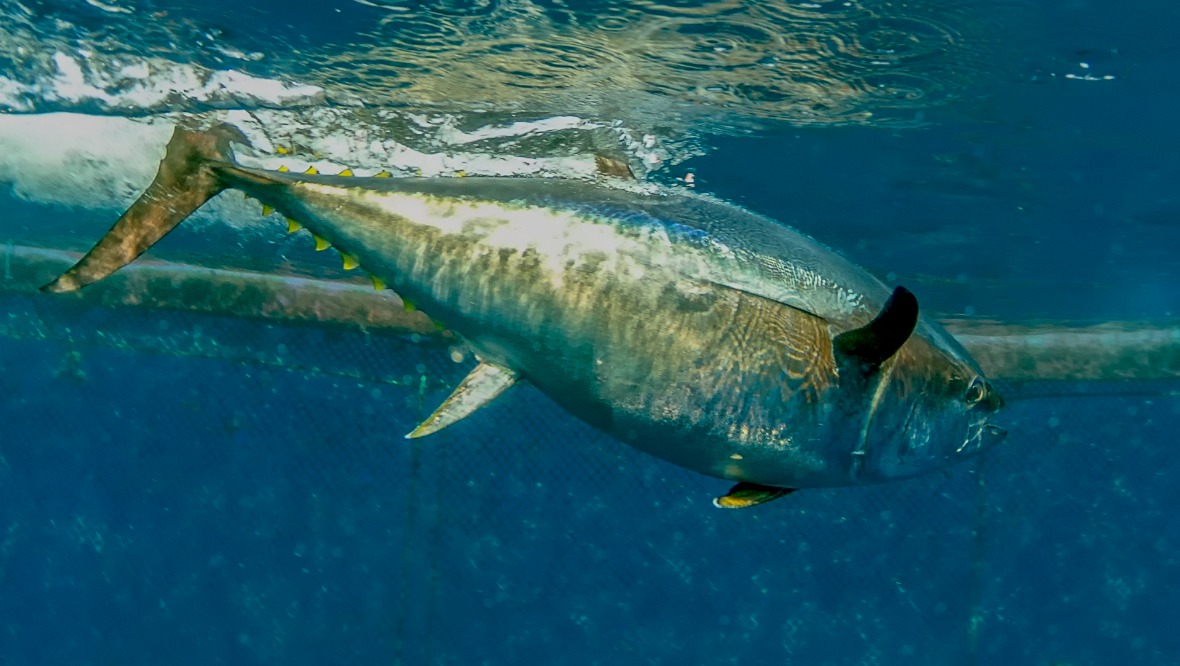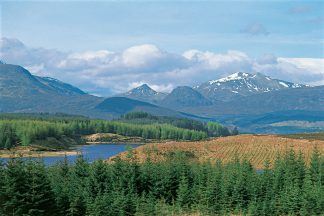A rare bluefin tuna has been found washed up on the shore of a Highland loch amid fears global warming has caused the species to move inland.
Atlantic bluefin tuna – the biggest, fastest and most valuable species of fish – were once common in the UK until the 1960s.
Waitress Joline Köhne, 28, found the dead fish while driving to the Kinloch Lodge Hotel in the Highlands where she works on November 17.
Joline, originally from Germany but who now lives in Dornie, Highlands, guessed there was around ‘£100 of fish’ there and said it looked ‘quite fresh’ when she came across it.
Earlier this year it was announced that bluefin tuna had returned to UK waters.
They previously came on migratory patterns determined by streams of warmer currents in the Atlantic.
Joline said: “I was driving to work and I saw this guy standing on the beach looking at something.
“He said it must have been hit by a boat because there was a bit of its tail missing.
“I was perplexed because it’s a sea loch but it’s very far inland.
“Maybe a trawler caught it and threw it overboard.
“I was confused to see it so far inland but we see dolphins here as well so it seems like bigger fish are coming in more often.
“It’s quite strange to see one that size.
“That’s about £100 worth of fish.”
John Hourston, 55, founder of the Blue Planet Society, believes that because of global warming, the fish could be ‘here to stay’.
John said: “To see them wash up on the shore of a sea loch is new to me.
“We’re increasingly seeing these massive fish and it’s a wonderful sight.
“Unfortunately, that one is dead, it’s thought to have been predated on by a seal or hit by a boat.
“It’s to do with warming and linked to climate.
“The Atlantic multidecadal oscillation is a warming which oscillates – it comes and goes.
“The reason tuna were around in the North Sea and other areas up to about the 1960s is linked to this changing temperature in the Atlantic.
“It is thought now that will have less effect going forward and there is an increase in sea surface temperature caused by climate change.
“It may be that we have bluefin tuna fish here to stay.”
Follow STV News on WhatsApp
Scan the QR code on your mobile device for all the latest news from around the country


 iStock
iStock























